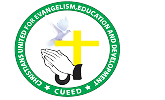South Sudan’s widespread poverty is a root of shortage of medicine, hospitals, trained doctors and nurses, contributes to the healthcare problem. Our community health care programme targets to reach members of our community facing the greatest barriers to obtaining quality health care.
In addition to a shorter life-expectancy, South Sudan has some of the highest maternal and child mortality rates in the world. For example, in Gogrial, (Warrap State) one of the most affected State in South Sudan for the many years of civil conflicts, the mortality rates for children under-five and new mothers are the highest in the world, with treatable sicknesses like pneumonia, diarrhea, malaria, infectious diseases and worm infestation contributing to the high mortality rates.

These preventable illnesses are a major concern in South Sudan. Often women must give birth in their own homes, with no medical assistance or post-natal treatment, due to the inaccessibility of hospitals and nurses. This puts both mother and child at risk for health complications that could otherwise be prevented with the proper medical care.
Our activities aim at raising awareness and a change of attitude, as well as personal and public hygiene promotion. We are engaged in management issues, planning, organization, and coordinating social action and psychosocial activities and family counseling.
Needs

Construction of medical center in Panaguk village in Awan Pajok County (population of the County is estimated at 22,872 persons as per 2008 population census) but now population is increasing where women, children, men and the elderly can be treated of opportunistic diseases such as typhoid, malaria, pneumonia, diarrhea, TB, syphilis, gonorrhea, measles and provide A ARVs, counseling for HIV/AIDS. There is also urgent need to train community Health workers so as to enable them give efficient and effective service delivery in the local community including midwifery.
